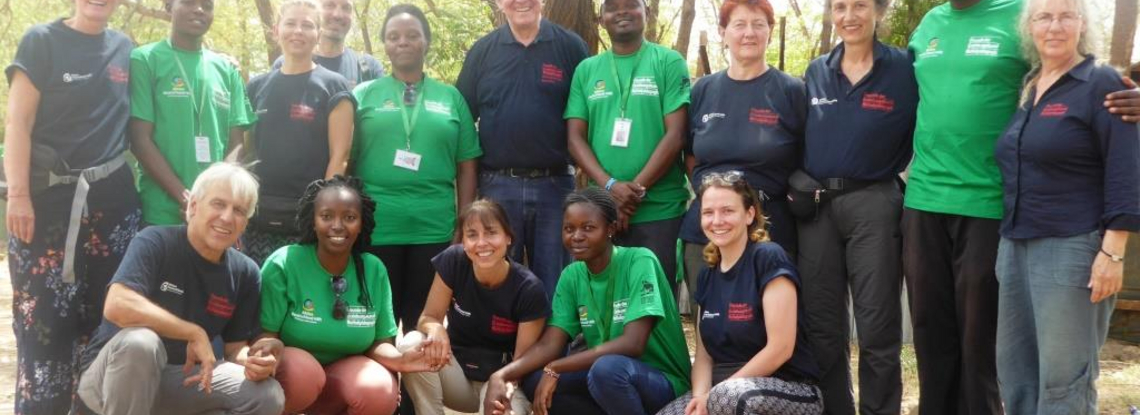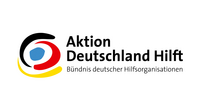Kenya June-July 2017

Designing the Future Together - Emergency and Trauma Pedagogy in Kenya
Naima, 7 years old, comes from Burundi and lives in the refugee camp Kakuma. In her homeland human rights violations are part of everyday life, Naima too has experienced the unimaginable; her father was murdered in front of her eyes.
In Kakuma, she is under special protection and is receiving the therapeutic help that she so desperately needs. Responsible parties referred her awhile ago to the Waldorf-Kakuma-Project so that she can participate in trauma pedagogical offerings every day and thereby receive support in coping with her trauma. Just four weeks ago, she showed strong reserve and only observed the activities from a distance. Now she seems to have changed completely, she laughs again and plays with the other children. Furthermore she is participating more and more in the programme and could build-up a close attachment to some of the workers.
In order to support and further train local colleagues, an emergency pedagogy mission took place here, just 100 km from the border to South Sudan, from June 24th to July 8th, 2017. The focus was on developing the emergency pedagogy work in the Reception Center of the refugee camp Kalobeyei, built in 2015, and supporting the existing team in camp Kakuma. Reception Centers are admitting facilities for newly arrived refuges where they stay until they are assigned permeant housing.
In the mornings, international professionals carried out emergency pedagogy work together with local colleagues. In the afternoons, deepening of theoretical knowledge and workshops were on the schedule.
The Waldorf-Kakuma-Project has existed since 2012, until 2014 in cooperation with the Friends of Waldorf Education, subsequently as an independent organisation. After funding difficulties in 2015, some contracts with colleagues could not be extended. Despite this most stayed on, continuing to work voluntarily and without pay. Today the team consists of 35 people; the majority are themselves refuges living in the camp. They work daily with emergency pedagogy at in total eight locations in the camps Kakuma and Kalobeyei.
The focus of the work in the Reception Centres is emergency pedagogy, while in the Child Friendly Spaces in Camp Kakuma trauma pedagogy is at the centre of the work.
“Makeshift” is a word, which comes to mind immediately when entering the refugee camp Kalobeyei. The people here in the Reception Centre are provided with just the minimum needed to survive. Potable water is usually in short supply, in the mass sleeping area it is cramped. Refugees endure up to three months here before they can move into permeant housing in the camp with their families.
A programme or offerings for the many children here were non-existent until recently. Since the beginning of the year, colleagues from Waldorf-Kakuma work daily here too with the children using emergency pedagogy. The working conditions are also often makeshift: During the day, room is made in the accommodations for artistic offerings such as painting and modelling. Outside in the open air or under tarps, which at least provide a bit of shade, the movement units take place. Often over 200 children take part in these activities.
Eric, a local colleague in emergency pedagogy, also comes from Burundi. Children and adolescents here are regularly gathered up, forcibly recruited as soldiers and forced to kill. Whoever tires to flee is followed, and often outcasted from their own families who themselves are threatened by the flight of their child. This is what happed to Eric. After his flight, his parent’s house was burned down, among other things, as a warning. He ended up fleeing alone, without his family, over Rwanda and Uganda to Kenya.
He came to the camp Kakuma in 2011 and works for Waldorf-Kakuma: “I thank God that I came here, because due to the work with the children my life has changed for the better.”


